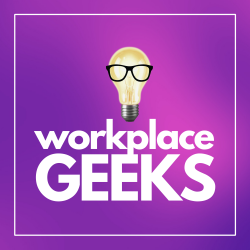To provide the best experiences, we use technologies like cookies to store and/or access device information. Consenting to these technologies will allow us to process data such as browsing behaviour or unique IDs on this site. Not consenting or withdrawing consent, may adversely affect certain features and functions.
The technical storage or access is strictly necessary for the legitimate purpose of enabling the use of a specific service explicitly requested by the subscriber or user, or for the sole purpose of carrying out the transmission of a communication over an electronic communications network.
The technical storage or access is necessary for the legitimate purpose of storing preferences that are not requested by the subscriber or user.
The technical storage or access that is used exclusively for statistical purposes.
The technical storage or access that is used exclusively for anonymous statistical purposes. Without a subpoena, voluntary compliance on the part of your Internet Service Provider, or additional records from a third party, information stored or retrieved for this purpose alone cannot usually be used to identify you.
The technical storage or access is required to create user profiles to send advertising, or to track the user on a website or across several websites for similar marketing purposes.
 The Workplace Geeks are out and about for their very first LIVE episode, recorded at The Workplace Event, Birmingham NEC, UK in April 2022. For this special show they’re joined by Dan Pilling, workplace strategy consultant at TSK Group. Their discussion explores the scope and value of practical workplace research pre and post pandemic, with some great questions from the audience (thanks to Brock James from iOtSpace, Stuart Watts from the GPA, and Steve Henigan from HCG). (more…)
The Workplace Geeks are out and about for their very first LIVE episode, recorded at The Workplace Event, Birmingham NEC, UK in April 2022. For this special show they’re joined by Dan Pilling, workplace strategy consultant at TSK Group. Their discussion explores the scope and value of practical workplace research pre and post pandemic, with some great questions from the audience (thanks to Brock James from iOtSpace, Stuart Watts from the GPA, and Steve Henigan from HCG). (more…)










 Six workplaces across the North of England and Northern Ireland have been recognised at the annual British Council for Offices (BCO) Regional Awards today. The Northern BCO Awards dinner returned in-person to the Kimpton Clocktower in Manchester, recognising the North’s highest quality developments and setting the standard for excellence in the office sector across the UK.
Six workplaces across the North of England and Northern Ireland have been recognised at the annual British Council for Offices (BCO) Regional Awards today. The Northern BCO Awards dinner returned in-person to the Kimpton Clocktower in Manchester, recognising the North’s highest quality developments and setting the standard for excellence in the office sector across the UK. 
 Six London workplaces have been recognised at the annual British Council for Offices’ (BCO) Regional Awards. The London Awards Lunch returned in-person to the London Hilton on Park Lane, recognising the highest quality developments in London and setting the standard for excellence in the office sector across the UK. The winning workplaces include: 80 Charlotte Street (Commercial Workplace); Plumtree Court, 25 Shoe Lane (Corporate Workplace); Dojo, The Brunel Building, 2 Canalside Walk (Fit Out of Workplace); ASOS HQ, Greater London House, 180 Hampstead Road (Refurbished/Recycled Workplace); Pennybank , 33-35 St John’s Square (Projects up to 1,500m sq. ); 1 Triton, 1 Triton Square, Regent’s Place (Innovation)
Six London workplaces have been recognised at the annual British Council for Offices’ (BCO) Regional Awards. The London Awards Lunch returned in-person to the London Hilton on Park Lane, recognising the highest quality developments in London and setting the standard for excellence in the office sector across the UK. The winning workplaces include: 80 Charlotte Street (Commercial Workplace); Plumtree Court, 25 Shoe Lane (Corporate Workplace); Dojo, The Brunel Building, 2 Canalside Walk (Fit Out of Workplace); ASOS HQ, Greater London House, 180 Hampstead Road (Refurbished/Recycled Workplace); Pennybank , 33-35 St John’s Square (Projects up to 1,500m sq. ); 1 Triton, 1 Triton Square, Regent’s Place (Innovation) 


 There’s a scene in the 1986 horror movie The Fly in which Seth Brundle (Jeff Goldblum) persuades the reporter Veronica Quaife (Geena Davis) to try two steaks, one of which Brundle has just sent between two teleportation pods in an effort to work out why the pods can’t process organic matter, including the organic matter that had recently belonged to a very unfortunate baboon.
There’s a scene in the 1986 horror movie The Fly in which Seth Brundle (Jeff Goldblum) persuades the reporter Veronica Quaife (Geena Davis) to try two steaks, one of which Brundle has just sent between two teleportation pods in an effort to work out why the pods can’t process organic matter, including the organic matter that had recently belonged to a very unfortunate baboon. 









April 29, 2022
Working from home can present particular challenges for women
by Rachel King • Comment, Flexible working